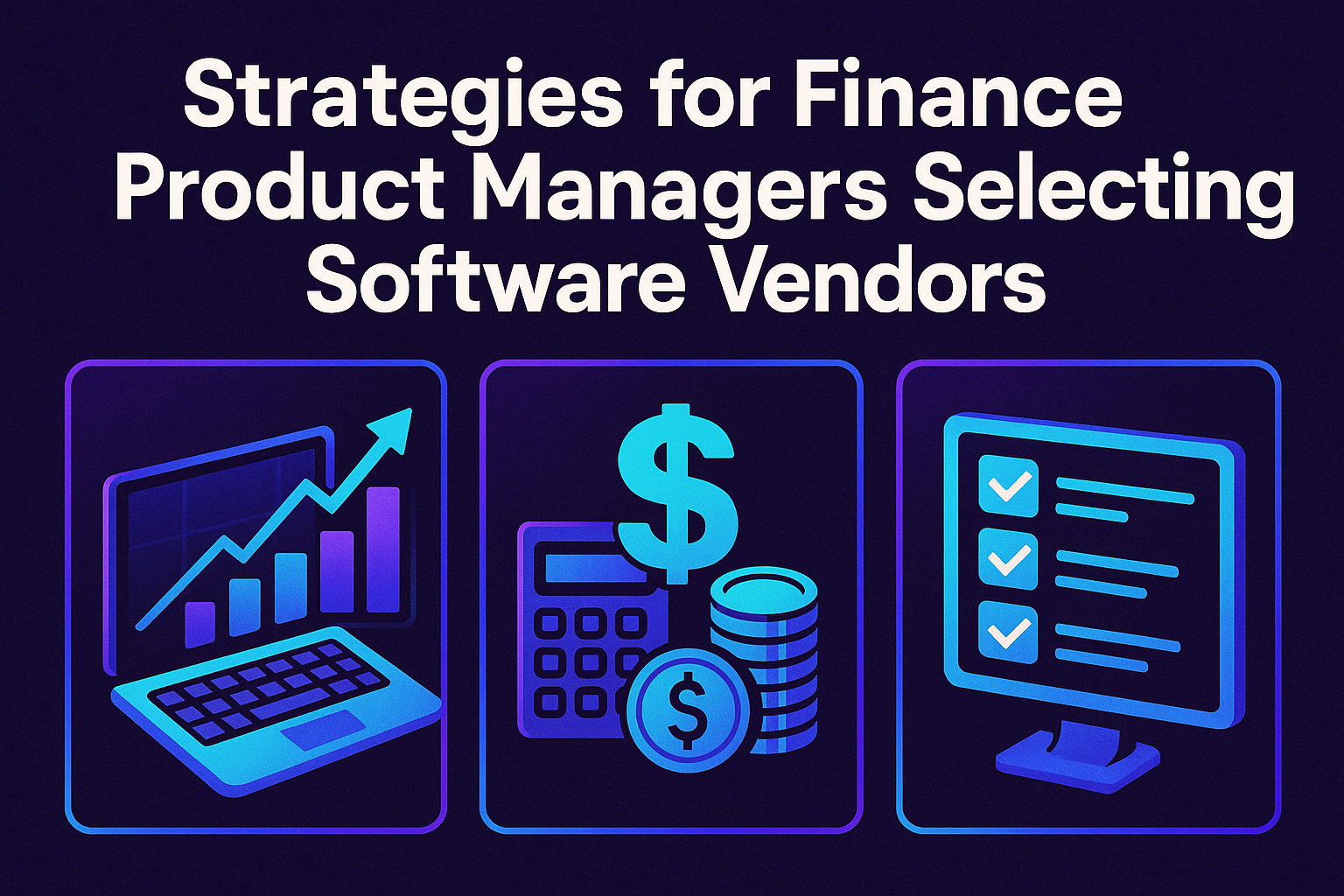Schedule a Demo
In my work with product managers in the finance sector, I've observed a nuanced approach to selecting software development vendors. The key is to align the vendor's capabilities with the specific needs of your financial product. This involves a deep dive into their portfolio, understanding their expertise in financial technologies, and evaluating their ability to deliver solutions that comply with stringent regulatory requirements.
When searching for a vendor, product managers must consider several critical factors. Experience in the finance industry is paramount; a vendor with a proven track record in developing financial software can navigate the complexities of this sector more effectively. Additionally, look for vendors who demonstrate a strong understanding of data security and compliance with regulations like GDPR, CCPA, or SOX. It's also essential to assess their technical proficiency, particularly in areas like cloud computing, AI, and machine learning, which are increasingly important in financial applications.
Beyond technical skills, the cultural fit between your team and the vendor plays a significant role in project success. Effective communication and collaboration are crucial, especially when working on complex financial software projects. I've seen projects thrive when the vendor's team is aligned with the client's values and work ethic. This alignment fosters a smoother workflow and helps in managing expectations and resolving issues promptly.
One of the most effective strategies for finding the right vendor is tapping into industry networks. Attending finance and technology conferences, participating in webinars, and engaging with professional groups can provide valuable insights into potential vendors. Additionally, seeking references from peers within the finance industry can offer firsthand accounts of a vendor's performance and reliability. These insights can be instrumental in making an informed decision.
When reviewing vendor proposals or responding to RFPs, product managers should look beyond the surface. It's important to analyze the proposed solutions in depth, understanding how they address specific challenges in the finance sector. Pay attention to the vendor's approach to project management, their timeline, and their flexibility in adapting to changes. A detailed proposal can reveal a lot about a vendor's commitment and understanding of your project's needs.
Due diligence is a critical step in the vendor selection process. This involves checking the vendor's financial stability, reviewing their past projects, and even conducting site visits if possible. I recommend looking into their client testimonials and case studies to gauge their success rate. It's also wise to assess their scalability and capacity to handle future projects, ensuring they can grow with your business.
While cost is always a consideration, it should not be the sole deciding factor. In the finance industry, where quality and security are paramount, investing in a higher-quality vendor can save costs in the long run by reducing the need for rework and ensuring compliance. I've seen many instances where choosing the cheapest option led to project delays and increased expenses due to poor quality. Therefore, product managers must strike a balance between cost and the value the vendor brings to the project.
Modern technology can streamline the vendor management process. Tools like vendor management software can help track performance, manage contracts, and ensure compliance. I've found that using such tools can significantly enhance transparency and accountability, making it easier to manage multiple vendors across different projects. These technologies also facilitate better communication and documentation, which are vital in the finance sector.
The goal should be to build a long-term partnership with your chosen vendor. This means looking beyond the immediate project and considering how the vendor can support your business's future needs. A vendor who is willing to invest in understanding your business model and strategic goals can become a valuable partner in your growth journey. I've seen successful long-term collaborations where the vendor and client work closely together to innovate and adapt to market changes.
Examining case studies and success stories from other finance companies can provide valuable insights into what works and what doesn't. These narratives often highlight the challenges faced, the solutions implemented, and the outcomes achieved. By studying these examples, product managers can better understand the potential of different vendors and how they might apply similar strategies to their own projects.
Agile methodologies are increasingly popular in software development, and they play a crucial role in finance projects. Agile allows for iterative development, enabling product managers to see progress and make adjustments as needed. This approach is particularly beneficial in the finance sector, where requirements can change rapidly due to regulatory updates or market shifts. I've found that vendors who embrace agile practices can deliver more flexible and responsive solutions.
Compliance and security are non-negotiable in the finance industry. Product managers must ensure that the chosen vendor has robust security measures in place and a thorough understanding of compliance requirements. This includes data encryption, regular security audits, and adherence to industry standards. I've worked with vendors who have dedicated compliance teams, which can be a significant asset in ensuring that your financial software meets all necessary regulations.
Finally, it's essential to consider how your vendor selection will stand the test of time. The finance industry is constantly evolving, with new technologies and regulations emerging regularly. A forward-thinking vendor who stays abreast of these changes and is willing to invest in continuous learning and improvement can help future-proof your software solutions. I've seen the benefits of working with vendors who are proactive in adopting new technologies and adapting to industry shifts.
